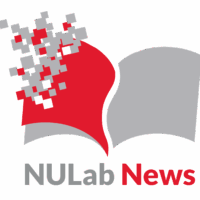Reposted from Northeastern Global News
Twitter’s decision to purge the accounts of 70,000 “misinformation traffickers” following the Jan. 6, 2021, attack on the U.S. Capitol reduced the amount of false information on the social media platform, according to new Northeastern University research.
The study, led by David Lazer, a distinguished professor of political science and computer/information science at Northeastern, examined more than 550,000 Twitter users who used the platform during the election cycle between June 2020 and February 2021.
In their analysis, researchers aimed to answer two central questions — did Twitter’s removal of these accounts reduce misinformation, and what impact did the bans have on the behavior of users who followed the accounts?
Misinformation is sharing of false information that users sometimes believe to be true.
Following Twitter’s purge of accounts between Jan. 8 and Jan. 12, 2021, Lazer says they saw about a 50% reduction in the sharing of tweets and retweets with web links with false information
“It suggests that deplatforming can be effective at reducing the amount of misinformation on a platform,” Lazer says. “It also highlights the power platforms have to control discourse on the platform.”
There are, however, limits to the study, Lazer notes. First, the data was collected around a specific period in U.S. history, and the information captured has limited generability to how the platform might function during other periods.
The Twitter of today is much different than the Twitter of three years ago, Lazer says.
Second, researchers cannot definitely say the entire reduction in misinformation was a direct result of Twitter removing accounts since other factors could have been at play.
In 2022, billionaire Elon Musk purchased Twitter and has made major structural changes to the company, including dissolving its trust and safety team and reinstating accounts. Reports have also shown misinformation on the platform increasing following his takeover.
Conducting research on Twitter has also become a challenge since it no longer provides free access to its application programming interface, or API, which are pieces of software that allow for the retrieval of data. Access is now very expensive, costing as much as tens of thousands of dollars a month.
Lazer questions how the current Twitter regime would respond if something similar to the Capitol attack were to happen during this election cycle.
“Clearly, under current management one would guess they wouldn’t do anything. Should that worry us? That’s a question,” Lazer says.
Lazer hopes his research “contributes to the broader literature and our understanding of what interventions affect the prevalence of misinformation.”
“My hope is that we have shed some light under the effects of deplatforming on misinformation, but it’s clearly not the last word,” he says. “Even if we had studied every platform in 2020, 2024 is going to be different, so we confront the challenge that the future isn’t necessarily like the past.”



